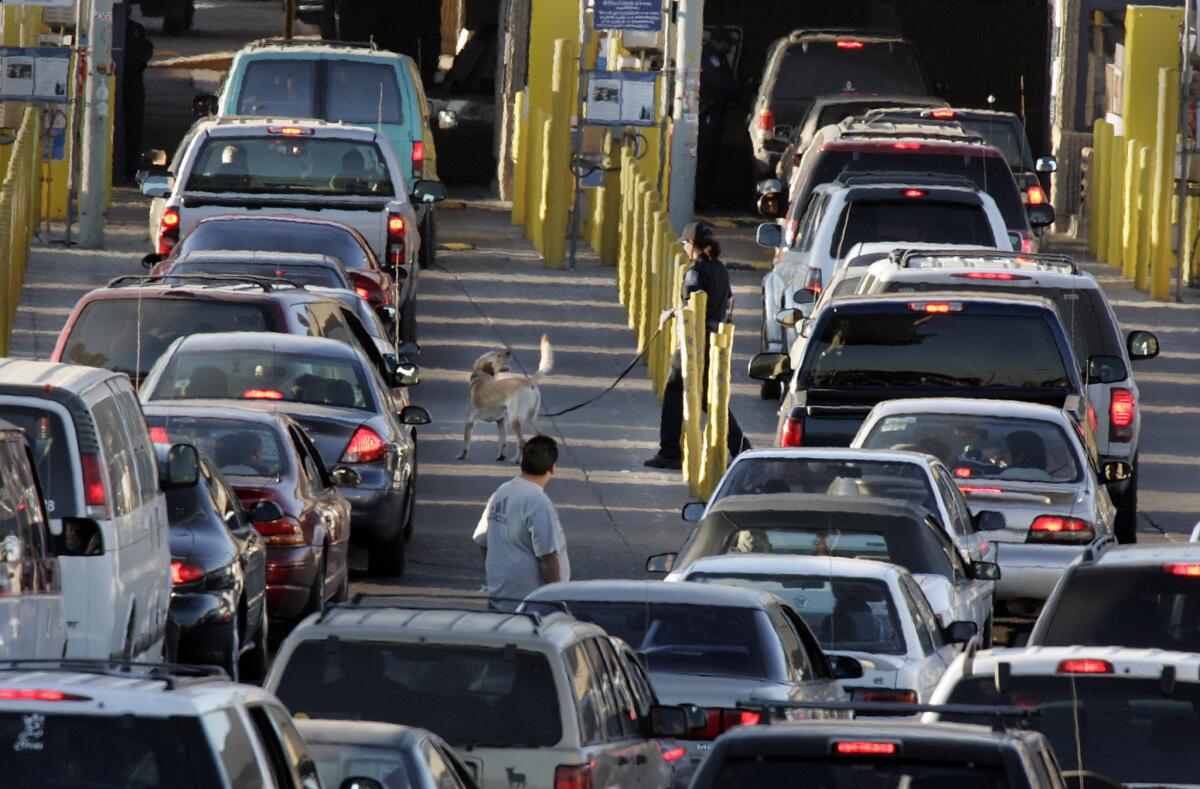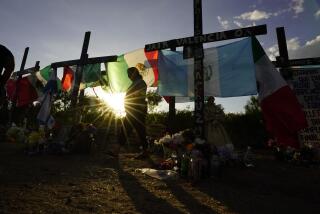Man charged with smuggling after deaths of 2 migrants found in trunk

- Share via
Reporting from San Diego — A Los Angeles man accused of smuggling two migrants across the border could face enhanced charges after the migrants died after being found in the trunk of his vehicle, prosecutors said Wednesday.
Federal prosecutors in San Diego charged Nicholas George Zakov, 41, with one smuggling count, alleging that he sought to bring the men across the border for $3,500.
But he could face more serious charges, bringing a potential sentence of life in prison, upon completion of an investigation and a coroner’s report that reveals the migrants’ cause of death, according to Asst. U.S. Atty. Michael Wheat.
Prosecutors said Zakov was crossing through the San Ysidro Port of Entry into San Diego on Tuesday afternoon when U.S. inspectors X-rayed his orange 2012 Dodge Challenger and discovered two migrants in the trunk. Tarcisio Casas Blanco, 28, and Jose Aurelio Quiroz Casas, 20, both from the Mexican state of Guanajuato, were unconscious and died later at a hospital, apparently from asphyxiation.
Car smuggling schemes are common along the border, and regularly place migrants’ lives in danger. Migrants, confined in tight spaces for hours at a time, suffer from extreme heat and suffocation.
In 2004, a screaming child in Calexico was pulled from a Honda’s hidden compartment in 120-degree heat. In 2003, 19 immigrants died after suffocating inside a tractor-trailer in South Texas.
In the San Diego area, authorities have found several bodies of migrants over the years who had been dumped by smugglers after crossing the border and finding they had died, Wheat said.
Prosecutors said Zakov told them he partnered with three smugglers in Mexico, and was instructed to drive to a Denny’s restaurant in Chula Vista where he would receive his payment. Zakov wiped away tears during his court hearing and appeared distraught, Wheat said.
U.S. and Mexican authorities continue to investigate the three alleged suspects in Mexico. “It’s just cargo to them. They don’t really care about people,” Wheat said.
Twitter: @ricardin24
More to Read
Sign up for Essential California
The most important California stories and recommendations in your inbox every morning.
You may occasionally receive promotional content from the Los Angeles Times.











